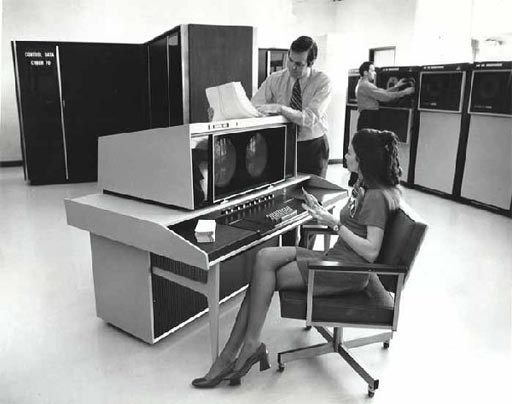Welcome back to my first real post. This time I'm going to talk about user groups, what they are and how you can benefit from joining one. This post will also be the first in my The Social Geek series which I'll briefly talk about before the actual content of this post.
The Social Geek Series
When I left college and started my life being a full-time developer, one of the things I started missing was the network I left behind. Don't get me wrong, I still have contact to some of the guys from my study, even a professor or two. However, I still miss the fact that I can easily meet other students be it either at class, at guest-lectures or even at the bar over a beer. There was always an oppotunity to meet new people and most importantly learn new things. That said, you'll also learn a lot from your co-workers at work, especially when you are new, but sometimes it isn't easy hooking up with people favoring a certain technology or geek out over a specific programming language.
While sketching out what I'd like to include on this blog, one of the things that came to mind was a place where I could talk about the different ways you can start getting involved in the community. This is where this series comes into play.
The first post in the series
Let's get down to business and look at what the first post in the series is all about. This time we'll look into user groups, what they are and how you can benefit from joining one. I hope you'll enjoy reading it as much I enjoyed writing it. Feedback is much appreciated so don't be shy to drop a comment, love it, hate it, let me know.
And with those words, let's get started!
What's a User Group anyway?
To understand the concept of what a user group is and why they have become so important to our community over time, we need to understand how user groups have evolved over time.
Together, let's step into the Tardis and travel back in time to the early 50's where it all began...
The early 50's - First contact

In the dark ages of mainframe computers, where rooms were used to house not dozens, but just a handful of computers, the sharing of hard-won knowledge wasn't as easy as it is today (keep in mind that the internet wasn't really a thing back then).
Sharing of hard-won knowledge wasn't as easy as it is today.
Limited by the amount of experts within the area, the first user group was founded in 1955 to facillitate the exchange of programming efforts between independent end-users, typically in the form of written documents (or publications). User groups were for experts by experts and knowledge was passed around manually between the members.
The funky 80's - Standing United

Next stop on our journey across time and space is the 80's (an awesome era ruled by Pac-Man and Donkey Kong). With the revolution of personal-computing (PC) hobbyists around the world united to help each other with programming, configuration and use of hardware and software, thus user groups started to flourish.
Hobbyists around the world united to help each other.
By the late 80's the internet started to emerge whereas user groups began to pop up on the World World Web (WWW), as open chat forums and later mailing lists and Internet Relay Chat (IRC). Thousands of users could now share knowledge, and much easier than before.
Today, Tomorrow - Now
Travelling forward in time to the world as we know it, we see that user groups continue to provide real life opportunities for learning from the shared experience in both the virtual and non-virtual space.

As back when it all started, you typically see that user groups are focusing on a particular type of technology, like a specific programming language, technology or even platform.
User groups are focusing on a particular type of technology, like a specific programming language, technology or even platform.
To give a few examples you can find user groups focussing on UNIX (and maybe you'd be able to find the very first user group founded in the late 60's, since that should still be around), basically every programming language, a broad spectra of web, desktop and platform technologies, you name it. You can find everything, and I do mean everything, if it exists, chances are that there is a user group in some form supporting that perticular subject.
As you can see, the concept of a user group is something that has been around for quite some time now, and odds are that it's something that will continue for many years to come.
Benefits
By now you should have an idea why joining a user group might not be such a bad idea. However, I've just been talking about what a user group is from a bird's-eye view, so let's zoom in a bit and explore a user group in more detail.
To facilitate knowledge sharing a user group may provide its members several services, including (but not limited to):
- Periodic meetings
- Conferences
- Social events
- Code Camps (Code Nights, Hackathons)
Meetings are held on a regular basic, where the members of the user group meet up and discuss one or more relevant subjects. Let's say you'd be attending a meetup in a Cloud technology user group, a relevant topic to discuss could be how to optimize throughput vs. the cost of scaling up. Another example could be that a member of the user group just tried out a new technique or method, and wants to explain and share his knowledge with the user group members.
Conferences are, at least to my knowledge, held less frequent than meetings. A conference is typically organized such that a speaker (a well-known face in the community) comes out and holds one or more lectures on relevant topics for the group. Sometimes conferences are publicly available, such that outsiders of the user group can participate as well. This is a good way for "hobbyists" to learn from experts in the field, and ask questions that the members of the user group cannot find answers for themselves. On the contrary it's also a good way for the experts to give back a little to the community that supports the technology they also appreciate and evolve themselves.
Social Events and Code Camps are often paired since members tend to socialize and code at the same time. Who doesn't like to learn, code and have a beer with friendly faces? A typical code camp could be to learn how to write an application using certain techniques or patterns. Where meetups and conferences are there to give you a theoretical background, code camps are the place where you get to practice your newly acquired knowledge. In my oppinion this is where things start coming together, since you get your hands dirty and at the same time either make new or brush up old friendships.
Join a User Group!
Nearing the end of the post I hope I've given you a taste of what a user group is and how you can benefit from joining one. Hopefully you'll feel inspired to join a user group yourself and spread the word. But where can I find user groups you might ask. There are a few options available when looking for user groups, like Meetup.com, which contains a broad vararity of available user groups.

That's all folks, I'll see you next time where there will be a technical topic on the menu. On that note, what's more suited to say than what are you waiting for... Join a user group!